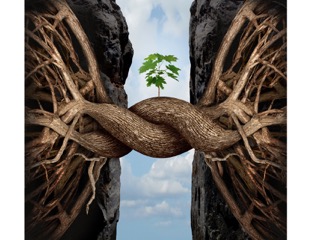I t came to me, after working with hundred of individuals, that there is a truth we cannot ignore: The amount of tension in your life is directly proportional the to the gap between what you are meant to be and what you have become. What you are meant to be: that is the purpose of your life; the reality of your call that comes from your unique gift.
t came to me, after working with hundred of individuals, that there is a truth we cannot ignore: The amount of tension in your life is directly proportional the to the gap between what you are meant to be and what you have become. What you are meant to be: that is the purpose of your life; the reality of your call that comes from your unique gift.
That gift when applied to your life's opportunities brings energy, passion, and purpose. The farther you wander from how your gift and talents are to be used, the more tension you experience. For example, some who come to me had the gift to gather-that is to draw people together into a common mission. But for any of a number of reasons, these people were locked up in cubicals, staring at a computer screen with almost no opportunity to engage their gift of gathering. When a gift like this is starved off from application (from sharing, in this example), there is a tension-a natural pain-that sends out a warning signal. The more the gift is starved off from it's divinely intended application, the deeper the tension, and the pain, until it is so hard to bear that the person seeks unnatural outlets such as just any old job or task.
Eudaimonia is the new buzzword for studies of happiness and well-being reference by Dr. Carol D. Ryff (University of Wisconsin, Madison). Dr. Ryff's clinical studies demonstrate that the physical well being of a person is negatively affected when life does not have purpose attached to the natural inclination (gift/talents) of a person's natural state. I have observed that once you identify your gift and the supporting talents, you become more conscious of the opportunities that come your way to share your gift. The more you recognize opportunities, the more you recognize the purpose for your life and the call that is drawing you to your mission.
When we realize the human limitations of our existence, we must accept that there will always be a tension. And even in the tension between two realities, there is a joy of engagement. For example, the joy of discovering self, the joy of discovering the uniqueness of each person, and the joy of discovering how we contribute our unique gift to making the world a better place one opportunity at a time-these all defy tension in our lives.


 t is not about regret.
t is not about regret.